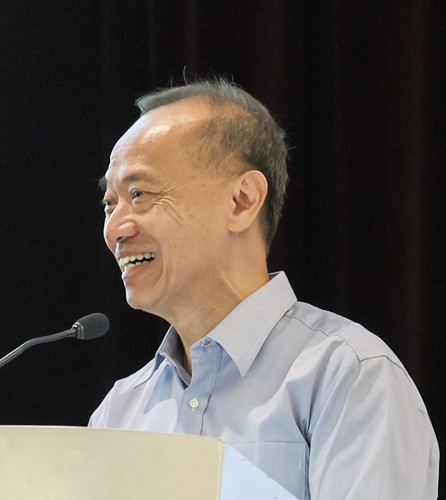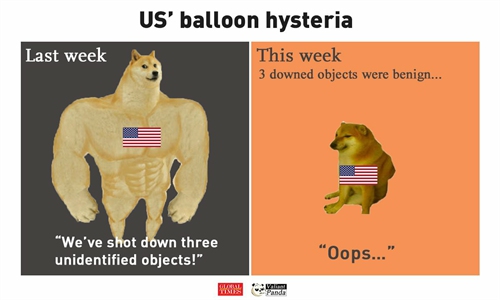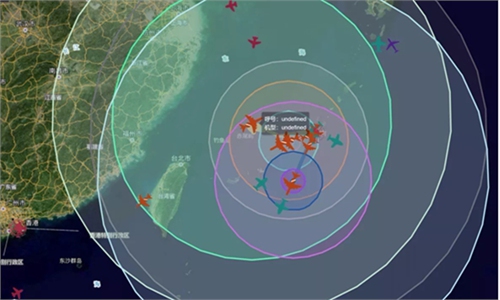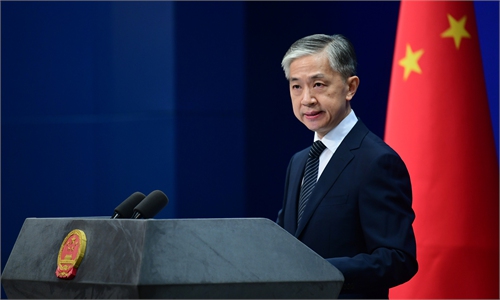IN-DEPTH / DIPLOMATIC CHANNEL
China behaved in a reasonable, disciplined way and the US overreacted in handling 'balloon incident': Former Singaporean FM

George Yeo Photo: Courtesy of Yeo
Editor's Note:
The international landscape is currently undergoing fundamental changes. The development of relations between China and the US, the world's two major powers, carries great significance for the world. How will the so-called balloon incident impact bilateral ties? Will a major conflict between the two countries be unavoidable? Global Times reporters Xie Wenting and Bai Yunyi (GT) conducted an exclusive interview with George Yeo (Yeo), former Singaporean minister of foreign affairs on these matters.
Yeo: There's a desire on both sides to bring relations back on track following the meeting between Chinese President Xi Jinping and US President Joe Biden in Bali. And out of that meeting was the plan for US Secretary of State Antony Blinken's visit to China. Because of this balloon incident, the visit will have to be postponed until conditions are right. And the conditions require taking domestic politics in the US into account. There is a clamor for a strong reaction against China. This makes it difficult for the White House and the US government to get back to what was agreed upon between the two leaders. So a certain amount of time is necessary for emotions to cool down.
We all hoping that secretary (Antony) Blinken's visit will look at issues very seriously and find ways for progress to be made. I don't think the balloon incident will define bilateral relations. The balloon incident shows how strong anti-China sentiments are politically in the US. The balloon incident can get bigger if both sides mismanage reactions to it. But if both sides take a calm approach and allow for domestic political reactions in the US to gradually calm down, then we can get back on track. But it requires very careful management of the incident on both sides.
China's response has been measured. That is a signal on the US side. The White House also does not want the issue to get out of control. But domestic politics in the US are a reality show, which the White House has to take into account.
I'll give it a bit of time. Sooner or later, some other issues will become important. It's clear that the US does not want a big problem with China because it has a big problem in Europe. In Europe, there is an ongoing war which can escalate out of control. This is much more serious than balloons. I don't think policymakers in the US want to have tense relations with China when they have to worry much more about the current war in Europe.
GT: How do you view the connection between the "balloon incident" and Washington's previously reported moves on the restriction of technology exports to China? Will this incident lead the US administration to further tighten restrictions on the export of technologies to China?
Yeo: The US can use the balloon as another excuse to tighten restrictions further. They can use all kinds of reasons. They can find many other "reasons" for restricting technology exports to China if they want to.
China has behaved in a reasonably disciplined way, not showing weakness but also not escalating unnecessarily. I think a good response is to combine anger, seriousness and humor. The US has overreacted, which is actually not bad for China. China should react in an appropriate way.
GT: In light of the response to the balloon, do you think the Chinese and US governments have demonstrated the ability to avoid a miscalculation and conflict in the event of a major crisis? Have guardrails been built between the two countries?
Yeo: I would put it this way. If a balloon can create such a domestic storm in the US, imagine if something more serious had happened and how difficult it would be for policymakers in Washington to make the right decisions. They will come under tremendous domestic political pressure to do things which may not be in the long term interest of the US. This is something that China should be aware of and factor in.
Accidents can happen, which can rapidly become very serious. It's important that both sides take a calm approach. China can do this more easily because it has a centralized system although the Chinese leadership has to be mindful of the feelings of Chinese people. Even though the rhetoric may have to sound fierce, actual political moves should be measured and take into account long-term mutual interests. The balloon incident is a lesson for both sides.
GT: Do you think a conflict in the Taiwan Straits between China and the US is unavoidable in the future?
Yeo: No, I don't think it's unavoidable. The US knows that any promotion of "Taiwan independence" will lead to war. The Chinese mainland knows that the unprovoked use of force by the mainland on Taiwan will provoke a US reaction. So in this sense, there is a kind of equilibrium to be reached.
I don't see a conflict in the Taiwan Straits as being inevitable at all. I think both sides should manage the situation carefully.
China's strong preference is for improved cross-Strait relations. That was the reason for Xi Jinping's meeting with Ma Ying-jeou in Singapore in 2015 which opened a path for Tsai Ing-wen to take. That path is still there.
Singapore's position on the Taiwan question is very clear. We have a one-China policy even before establishment of diplomatic relations with China in 1990. We have close relations with China. I don't think there should be any doubt about Singapore's position.
GT: China advocates a diplomatic philosophy of win-win cooperation. This year also marks the 10th anniversary of the concept of "a global community of shared future." How do you understand the connotation of this concept? What's the significance of this idea for breaking the camp politics advocated by the US-led West?
Yeo: It might take some time before the US and the collective West to accept China fully as an equal on the global stage. The West has dominated the world for a very long time. They believe that their values and their systems are the best for the entire world. They assert their values as universal values. They think their systems represent the highest achievement of human society. So when China posits a different value system and a different political system, it is seen as a challenge to the West. Many in the West think that when China becomes stronger and bigger, it will become aggressive the way they were. I don't think they understand the nature of Chinese society. I don't think they understand the history of Chinese civilization. A lot of the people who express great fear of China and criticize China in very strong terms have a very shallow understanding of the Chinese people, of Chinese culture and civilization.
It would take a period of time before a new equilibrium is reached; there will be trials of strength before that happens. China must at all points make sure that it doesn't show weakness. But at the same time it should not show aggression. It has to react, but it must be careful not to overreact. China's response to Western pressure has to be carefully thought through taking into account the nature of Western society. Maybe after some more years, a greater degree of acceptance of China's rise will be accepted in the West. And more serious negotiations can then take place.



